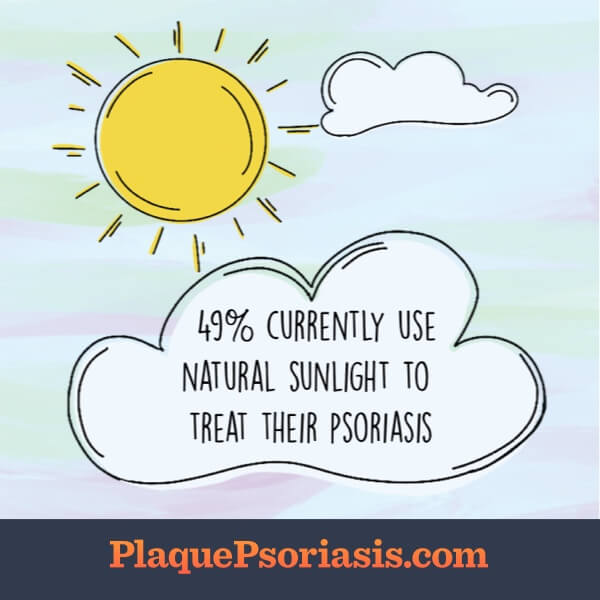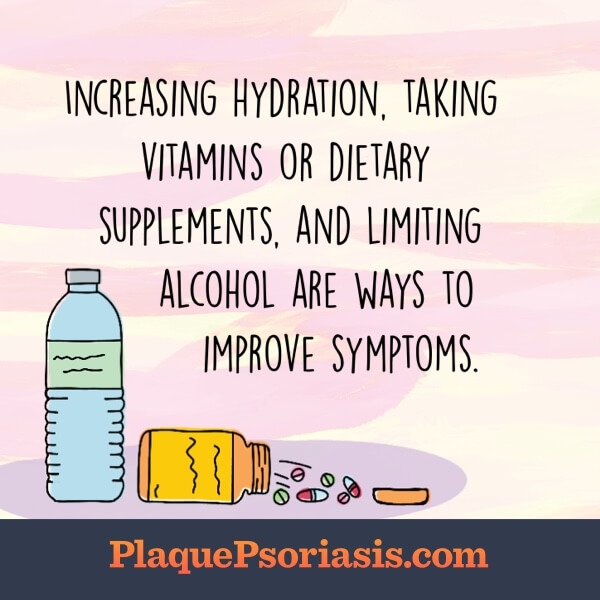Psoriasis Talk: Alternative Treatments
It can be overwhelming just thinking about the many treatment options for psoriasis. Topical medicines, steroids, and biologics can control psoriasis symptoms. But there is no cure for the underlying disease. For many, this means living with itchy, scaly skin even while taking powerful drugs to lessen discomfort.
Research about alternative treatments for psoriasis remains sparse. Still, some people say they find relief by increasing their water intake and getting more sun. Others may take herbal supplements or use lotions with alternative ingredients.
What do those with psoriasis have to say about alternative treatments?
Our goal at PlaquePsoriasis.com is to validate and provide resources to those living with this condition. In addition to sharing stories and insight from psoriasis advocates, we also conduct our annual In America survey. This survey helps us to better understand how psoriasis impacts real patients.
The 5th Psoriasis In America survey was conducted online from October 2019 through March of 2020. A total of 868 people completed the survey. In it, we asked about alternative treatments and their impact. Time to take a look at what those with psoriasis have to say:
How Vitamin D and the sun impact psoriasis symptoms
In the survey, 49 percent of psoriasis patients revealed that they use sunlight to treat their psoriasis. Sunlight contains both UVA and UVB light.
Many psoriasis patients use regular, brief periods of sun exposure to reduce symptoms. This is best for people with mild or moderate psoriasis that is not made worse by sun exposure.1 Your doctor can advise you about how long to spend in the sun and how often. They also check regularly for sun damage.
Before starting treatment with sun exposure, let your doctor know if you are using any topical medicines. Many of these can make your skin more sensitive to light and more likely to burn. It is crucial that you protect yourself from sunburns. Sun damage can make psoriasis symptoms worse. There are plenty of ways to enjoy the sun and be safe.
Diet and lifestyle changes are another alternative treatment option
Those with psoriasis also shared the lifestyle changes that have made a difference in their symptoms.
Many survey respondents wrote about staying hydrated. Drinking more water serves as an extra defense to keep the skin moisturized. Chemicals like caffeine dehydrate your body when you drink them. Consuming alcohol not only dehydrates you but can trigger psoriasis symptoms.2
Talk with your doctor about any vitamins, supplements, or lifestyle changes. Some can make your psoriasis medicines work less effectively or even cause side effects.
What else do those with psoriasis have to say?
There is validation and acceptance when we find a connection with someone else. This is especially true of those who live with psoriasis. Other members of online communities can not only confirm strange symptoms but provide support to those who are struggling.
On our PlaquePsoriasis.com Facebook page, we asked, "What are some of your favorite natural remedies for psoriasis?"
Here are a few of the responses:
"I take a turmeric capsule every morning, and I mix powdered turmeric from the spice rack with Aquaphor and apply it to my psoriasis every morning."
"Vitamin E oil for face and scalp, shea/cocao/vaseline for body."
"Dead Sea salt baths."
Want to learn more about alternative treatments and psoriasis management?
Hear straight from our advocates about many different alternative treatments. Along with research, they share their own approaches to managing psoriasis with alternative treatments.
- Diane compares standard and alternative treatments. She also shares her research on treating psoriasis symptoms with bee venom.
- Chris shares about dry brushing and gives his tips for safety.
- Clair stresses the importance of reading the fine print before starting new alternative treatments.
- Tikeyah writes about how to get your vitamin D tested.
The best place to learn about alternative treatments for psoriasis is with your doctor
Before starting any treatment, standard or alternative, speak with your doctor. You and your doctor can decide which options fit within your treatment plan while considering all aspects of your health.



Join the conversation